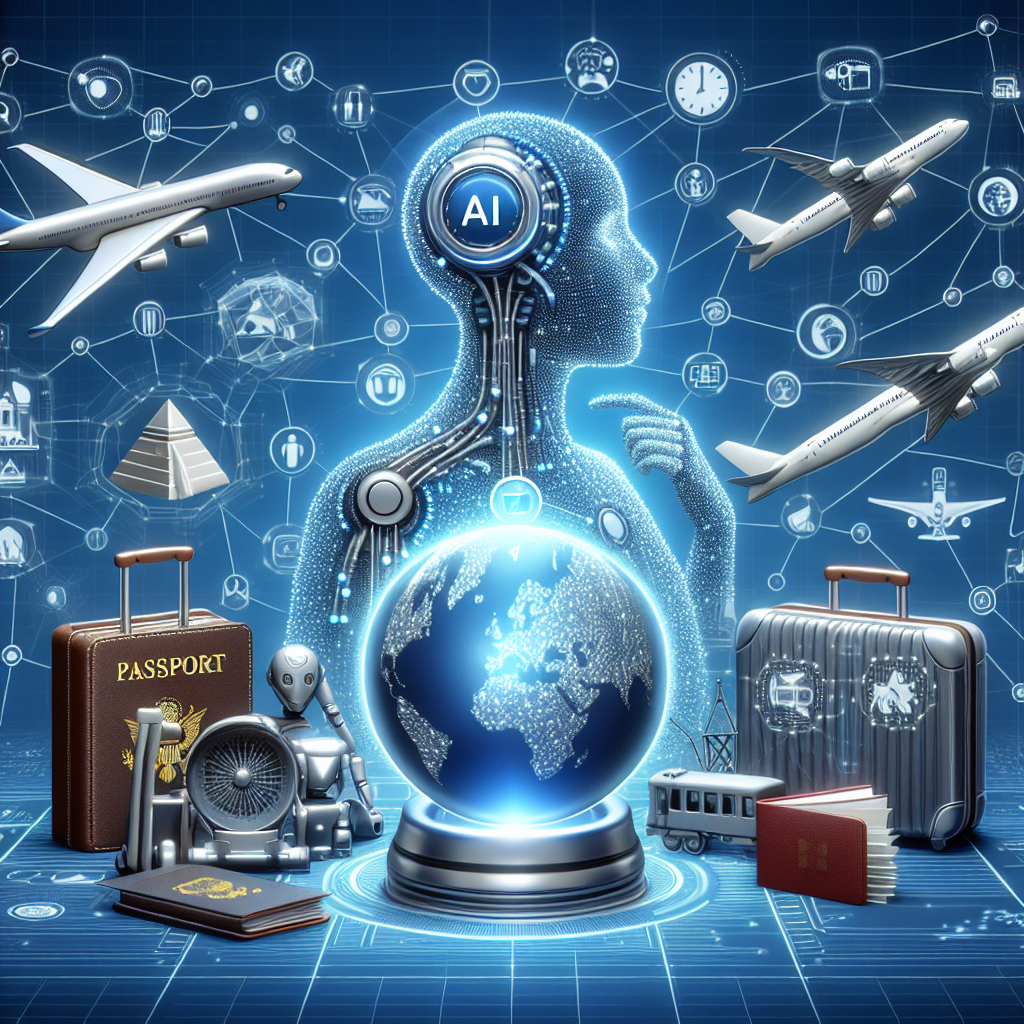The travel industry has been revolutionized by the advent of artificial intelligence (AI) in recent years. From personalized recommendations to seamless booking processes, AI is transforming the way we plan and experience our trips. In this article, we will explore how AI is reshaping the travel industry and the benefits it brings to both travelers and businesses.
1. Personalized recommendations
One of the most significant ways AI is revolutionizing the travel industry is through personalized recommendations. AI algorithms can analyze vast amounts of data about a traveler’s preferences, past behavior, and demographics to provide tailored recommendations for accommodations, activities, and destinations. This level of personalization enhances the travel experience by ensuring that travelers receive suggestions that align with their interests and preferences.
For example, when a traveler searches for a hotel in a specific location, AI can recommend nearby restaurants, attractions, and activities based on the traveler’s preferences. This not only saves time for the traveler but also enhances their overall experience by providing relevant and personalized recommendations.
2. Chatbots and virtual assistants
AI-powered chatbots and virtual assistants have become increasingly popular in the travel industry, providing travelers with instant assistance and support throughout their journey. These chatbots can help travelers book flights, hotels, and activities, answer questions about travel destinations, and provide real-time updates on flight status and delays.
Chatbots and virtual assistants are available 24/7, making them a convenient and efficient resource for travelers who need assistance at any time of the day or night. By leveraging AI technology, travel companies can provide better customer service and streamline the booking process, ultimately enhancing the overall travel experience for their customers.
3. Predictive analytics
AI-powered predictive analytics are helping travel companies better understand customer behavior and preferences, allowing them to anticipate trends and make informed decisions. By analyzing data on booking patterns, search queries, and customer feedback, AI can help businesses optimize pricing strategies, improve marketing campaigns, and enhance customer loyalty programs.
Predictive analytics also enable travel companies to forecast demand, optimize inventory management, and tailor promotions and offers to individual customers. By leveraging AI technology, businesses can make data-driven decisions that are more likely to resonate with their target audience and drive business growth.
4. Enhanced safety and security
AI is also transforming the way travel companies address safety and security concerns. AI-powered tools can analyze vast amounts of data in real-time to detect potential threats, monitor traveler behavior, and identify anomalies that may indicate security risks. By leveraging AI technology, travel companies can enhance their security protocols, improve emergency response times, and ensure the safety of their customers.
For example, AI-powered facial recognition technology can help airports and airlines streamline the boarding process, enhance security screening, and improve the overall travel experience for passengers. By automating routine tasks and providing real-time insights, AI technology can make travel safer and more efficient for everyone involved.
5. Streamlined booking processes
AI is also revolutionizing the way travelers book their trips, making the process faster, easier, and more convenient. AI-powered booking platforms can analyze search queries, preferences, and budget constraints to provide travelers with personalized recommendations and suggestions. By leveraging AI technology, travelers can find the best deals, compare prices, and book their trips with just a few clicks.
Furthermore, AI-powered booking platforms can automate the reservation process, sending confirmation emails, reminders, and updates to travelers in real-time. This level of automation not only saves time for travelers but also reduces the risk of errors and ensures a seamless booking experience from start to finish.
FAQs:
1. How is AI improving the travel booking process?
AI is improving the travel booking process by providing personalized recommendations, streamlining the reservation process, and automating routine tasks. By analyzing data on traveler preferences, behavior, and demographics, AI-powered booking platforms can offer tailored suggestions and deals that align with a traveler’s interests and budget. This level of personalization enhances the overall booking experience and ensures that travelers find the best options for their trips.
2. How is AI enhancing safety and security in the travel industry?
AI is enhancing safety and security in the travel industry by analyzing data in real-time to detect potential threats, monitor traveler behavior, and identify anomalies that may indicate security risks. By leveraging AI technology, travel companies can improve their security protocols, enhance emergency response times, and ensure the safety of their customers. AI-powered tools such as facial recognition technology and predictive analytics help travel companies address safety and security concerns more effectively, making travel safer and more efficient for everyone involved.
3. How are chatbots and virtual assistants improving customer service in the travel industry?
Chatbots and virtual assistants are improving customer service in the travel industry by providing instant assistance and support to travelers throughout their journey. These AI-powered tools can help travelers book flights, hotels, and activities, answer questions about travel destinations, and provide real-time updates on flight status and delays. By leveraging AI technology, travel companies can provide better customer service, streamline the booking process, and enhance the overall travel experience for their customers. Chatbots and virtual assistants are available 24/7, making them a convenient and efficient resource for travelers who need assistance at any time of the day or night.
In conclusion, AI is revolutionizing the travel industry by providing personalized recommendations, streamlining booking processes, enhancing safety and security, and improving customer service. By leveraging AI technology, travel companies can better understand customer behavior and preferences, optimize pricing strategies, and make data-driven decisions that drive business growth. As AI continues to evolve and innovate, the travel industry will undoubtedly benefit from the enhanced efficiency, convenience, and personalized experiences that AI technology brings to both travelers and businesses.

